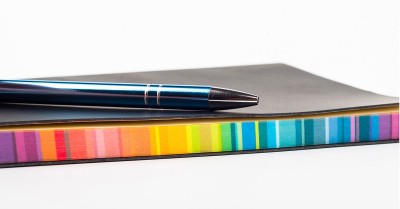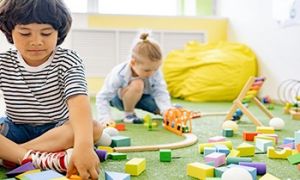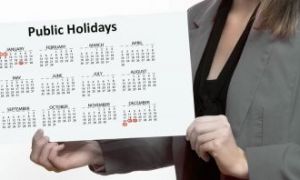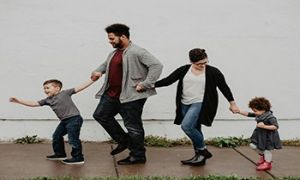Writing a personal philosophy is a great way for others to read what your values and beliefs are in regard to early childhood education. The following article provides information on how to write a personal philosophy including details of what can be included, questions to think about and examples of personal philosophies.
As an educator, your own philosophical concept of early childhood education distinguishes you as an Educator. It's a declaration of your values, which in turn guides your actions.
What Is A Personal Philosophy
A personal philosophy clearly defines you as an Educator. It is a statement of reflection about your beliefs that influence your actions. It's the process of continuously examining, testifying and verifying your personal beliefs.
It is a tool that not only guides your own teaching and beliefs but also helps other Educators and Parents understand your individual approach to early learning.
How To Write A Personal Philosophy
The personal philosophy of early childhood education should be used as a tool that not only guides your own teaching but also helps your staff and parents understand your individual approach to early learning.
If someone asked you to explain your personal philosophy in early childhood education, what would you say? How would you begin to formulate a statement that captures the essence of your beliefs about teaching and learning?
It can include -
- How children learn,
- Your role as the educator,
- the Role of the community,
- Your understanding of early childhood education,
- Your commitment to further professional development,
- Role of families
The following are some of the most important areas you may want to address in your personal philosophy.
- Take some time to express your thoughts about the job of an educator. Include your thoughts on child-led vs. teacher-led activities, the educator's involvement in playtime and the presenting of brand new ideas vs. discoveries made by the children on their own. Include a statement that expresses your true hopes and expectations for the children.
- What are your thoughts on how youngsters learn best? What kinds of activities and opportunities do you think should be included in the environment to help all children learn to their full potential, regardless of their preferred learning style? What impact might the child's preferred learning style have on the child's position as a knowledge receiver? Include both planned and open-ended learning activities, and discuss what you believe is the appropriate ratio of each in the room.
- As you educate diverse children, talk about how you'll handle varied personalities, learning styles, special needs, and cultural diversity. Include a statement on how children with unique learning needs will be welcomed in your classroom, as well as your specific tactics for fulfilling their needs as well as the requirements of others children. Embracing diversity is critical to creating a warm and welcoming learning environment. You'll want to make sure you clearly outline how you'll address a variety of demands when writing your philosophy.
- Plan out your curricular orientation, including details on how you came to hold the values you do. However, be careful not to disparage alternative ways when discussing this stage. Instead, consider tying your curricular orientation information to your prior assertions regarding the educator's role in early childhood education.
- Describe how you handle any behavioural difficulties that arise in this part, as well as why you think your method will succeed. Provide examples.
- Finally, decide how parents and other primary caregivers will be included. Outline your plan for involving parents and keeping lines of communication open with family members.
- Clear statements about what you believe and how you intend to implement and support your beliefs.
- Explain the values that guide your teaching beliefs.
- Including specific examples of teaching theories and approaches
- Include child development theorists that you like and provide examples
- Relate your philosophy to current trends and theories, as this philosophy should guide your actions as an early childhood educator.
- Links to the EYLF (or approved learning framework), Code of Ethics
It is truly up to you to create a philosophy that accurately expresses your unique teaching style, values and beliefs when it comes to early childhood education. A good way to think of it is by writing down some of your beliefs regarding children's development and learning.
Questions To Think About
Use the following questions to help you think about your beliefs regarding teaching young children. It is not necessary to respond to each of these questions in your written philosophy. You may also decide to comment on additional issues as well. Take some time to think about each one in some depth.
- How do you view young children?
- What is the child’s role in their development and learning?
- What do you believe about how young children learn?
- How do you view your role as an Educator?
- How will your views influence your teaching?
- What kind of environment do you hope to create? How does this relate to your basic beliefs about young children and learning?
- What do you hope young children will become?
- What do you want them to achieve, accomplish, learn, feel, etc.?
- What kind of assessment in childcare will you use to be sure that children have met objectives?
- Looking back at the history of early childhood education, who or what approaches have the greatest impression on you, and why?
Examples Of Personal Philosophies
Here are some examples of personal philosophies:
- I believe that each child is an individual and as an educator, I will value and develop each child's strengths, interests, skills, abilities and knowledge to extend their learning.
- I believe that children learn through play. I will provide opportunities for children to explore, discover, create and imagine.
- I believe in cultural diversity. I will celebrate the benefits of diversity with each individual child and enable them to understand and acknowledge differences.
- I believe young children are very concerned about themselves and the small world they live in: family and home. However, each child is unique with different interests, backgrounds, and developmental stages.
- I believe the environment plays a major role in the success of an early childhood program. It should enhance the children’s interests in all developmental domains. I believe learning in an early childhood environment is done most successfully through stations that can be visited, explored, and revisited again and again. The environment should take into consideration the social skills, communication skills, physical abilities or challenges, and learning styles of the children being served.
- I consider families a vital aspect of my program. Parents who are able to spend time in the classroom occasionally are more aware of the details of their child’s day. Observing what goes on first-hand helps a parent know what to ask the child at the end of the school day.”
- The early years of a child’s life are busy. I believe learning is happening all the time and is interwoven through all developmental domains. These include: physical, social/emotional, cognitive and communication. Therefore, the goal of my program is to make this ongoing learning experience safe, positive, and fun, nurturing the whole child as I strive to guide them into the next stage of development with confidence in themselves and an excitement for continued learning.
- Children need the assurance of being loved and cared for while they are enjoying an educational environment. Teaching children is my passion. Security and trust are very important components as well, of my relationship with each child.
- In planning my program I would strive for a developmentally appropriate, child-centred atmosphere where children have the opportunity to master new challenges through activities and topics that are meaningful to them, thus building their self-esteem as they develop and learn.
- Children should be given choices, responsibilities, and opportunities to initiate their own learning. I believe observations and assessments are excellent tools to use when planning a curriculum. Observations, not only aid in creating the curriculum but also give insight into the development, knowledge and skill levels of each individual child.
-
I believe that as an early childhood educator I am responsible for providing infants, toddlers and young children with positive learning experiences. I strive to model respect, patience, and care for children and adults I come in contact with. Children have the right to have their needs met and receive the proper education while in the care of their caregivers.
-
My philosophy is based on theorists, Jean Piaget, and Lev Vygotsky, and the early childhood movement from Reggio Emilia, Italy. I believe that children benefit from practices that are grounded in research.
-
Children are motivated to learn when they have opportunities to make choices in an environment that is enriching and stimulating. Children are curious from infancy and have a desire to learn from their environment and those around them. When children are encouraged to interact with their peers and adults in positive ways, they feel safe to explore their surroundings.
-
As a teacher, I seek to guide children from needing assistance with a task to accomplishing a task independently by providing experiences that are challenging yet attainable for every child. I facilitate learning through the in-depth study of a subject that is of interest to children. Children can be highly motivated, feel actively involved in their own learning and produce work of high quality when they have the time to engage in short and long term projects.
-
My role as a teacher is to be a facilitator and provide enriching activities so that children are supported as they learn about their strengths and work on their weaknesses. As a facilitator, I support children as they embark on a journey to make discoveries about themselves and learn to recognize and name their feelings.
-
My goal as a teacher is to provide children with a rich environment where they feel safe to explore, initiate learning, and feel free to express themselves.
-
As a teacher, I seek to form a close relationship with each child under my care, and their families. I make use of our communities' resources and incorporate the child’s community into the program. I see each child as a unique individual with a great capacity to learn and able to make positive contributions to those around him or her. I strive to provide an environment where children and families from different cultural backgrounds feel welcomed and accepted.
-
My role as a teacher is to be a facilitator and provide enriching activities so that children are supported as they learn about their strengths and work on their weaknesses. As a facilitator, I support children as they embark on a journey to make discoveries about themselves and learn to recognize and name their feelings.
-
My goal as a teacher is to provide children with a rich environment where they feel safe to explore, initiate learning, and feel free to express themselves.
-
As a teacher, I seek to form close relationships with each child under my care, and their families. I make use of our communities' resources and incorporate the child’s community into the program. I see each child as a unique individual with a great capacity to learn and able to make positive contributions to those around him or her. I strive to provide an environment where children and families from different cultural backgrounds feel welcomed and accepted.
Personal Philosophy Template
The Personal Philosophy template enables Educators to write and display their personal philosophy within their centre.
To download: Personal Philosophy Template
When writing your personal philosophy remember:
- Use present tense, in most cases. Write the paper in first-person (which is the most common and easiest for your audience to read).
- Write in language and concepts that can be broadly appreciated. A general rule is that the statement should be written with the audience in mind. It may help to consider a school administrator (e.g., school principal) as your audience.
- Write a paper that will let your audience know where you stand in regard to important educational theories and practices. By including specific examples of teaching theories and approaches, you are able to let your reader take a mental “peek” of your classroom.
- Make the paper memorable and unique. Think of this teaching philosophy as part of a job application where your readers are seeing many of these statements. What is going to set you apart from others? What about you are they going to remember? Create a vivid portrait of yourself as someone who is intentional about teaching and committed to his/her career.
Once you've finished, make sure your personal philosophy statement is accessible to Educators and families within the service. Explaining the principles that influence your teaching and the overall teachings of service will assist other Educators in ensuring that their own teaching techniques are in keeping with the type of environment you wish to create.
Families will also benefit from hearing about your personal philosophy on early childhood education. During orientation, consider giving them a copy of your statement. This may assist parents in determining whether your approach to education aligns with their own values and whether the service is a good fit for their child.
Creating a personal philosophy should not be intimidating, in fact, it is an excellent opportunity to clarify your teaching philosophies and beliefs and commit them to paper.
Reference:
Foundations Of Early Childhood
Developing A Personal Philosophy Of Teaching
Developing A Personal Philosophy Of Early Childhood Education
How to Develop a Personal Philosophy of Early Childhood Education, Early Childhood Education Blog
Jones, M., Shelton, M. (2011). Developing Your Portfolio--Enhancing Your Learning and Showing Your Stuff: A Guide for the Early Childhood Student or Professional, Second Edition. Routledge.







 As an Educator in Australia, your pay rate falls under the Children’s Services Award 2010. This award states the minimum amount that an employer can
As an Educator in Australia, your pay rate falls under the Children’s Services Award 2010. This award states the minimum amount that an employer can When working as a qualified Early Childhood Teacher (with a university degree) within a service, your rate of pay will come from the Educational Services
When working as a qualified Early Childhood Teacher (with a university degree) within a service, your rate of pay will come from the Educational Services When working as a Diploma Qualified Educator your pay rate is from the Children's Services Award 2010. This Award states your minimum rate of pay
When working as a Diploma Qualified Educator your pay rate is from the Children's Services Award 2010. This Award states your minimum rate of pay When working as a Cert 3 Qualified Educator, your pay rate is from the Children's Services Award 2010. This Award states your minimum rate of
When working as a Cert 3 Qualified Educator, your pay rate is from the Children's Services Award 2010. This Award states your minimum rate of Educational Leaders play a crucial role in their early childhood service by ensuring that the educational program aligns with best practices and supports the holistic
Educational Leaders play a crucial role in their early childhood service by ensuring that the educational program aligns with best practices and supports the holistic In early childhood education and care, ratios are more than a technicality—they are a frontline safeguard. Every child deserves responsive supervision, emotional connection, and developmental
In early childhood education and care, ratios are more than a technicality—they are a frontline safeguard. Every child deserves responsive supervision, emotional connection, and developmental With the new national child safety reforms kicking in on 1 September 2025, early childhood services like yours have a real opportunity to lead the
With the new national child safety reforms kicking in on 1 September 2025, early childhood services like yours have a real opportunity to lead the Here’s a comprehensive Mobile Phone and Smart Watch Policy tailored for early childhood education and care (ECEC) services in Australia, aligned with the latest 2025
Here’s a comprehensive Mobile Phone and Smart Watch Policy tailored for early childhood education and care (ECEC) services in Australia, aligned with the latest 2025 The Sea of Fish Challenge is a national initiative that invites children, educators, families, and communities to create and display fish artworks as a symbol
The Sea of Fish Challenge is a national initiative that invites children, educators, families, and communities to create and display fish artworks as a symbol Across the early childhood education and care sector, educators are sounding the alarm: current staffing ratios are insufficient to deliver safe, meaningful, and developmentally appropriate
Across the early childhood education and care sector, educators are sounding the alarm: current staffing ratios are insufficient to deliver safe, meaningful, and developmentally appropriate


